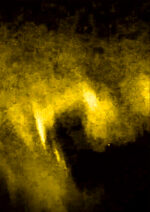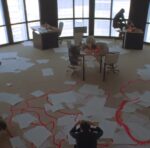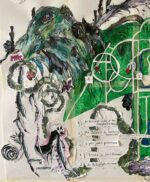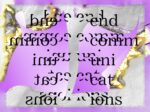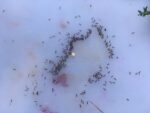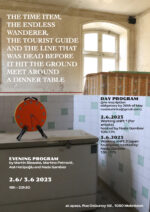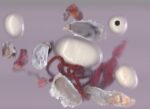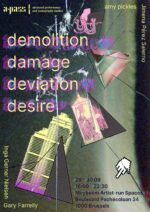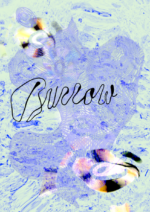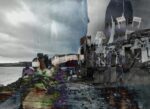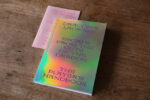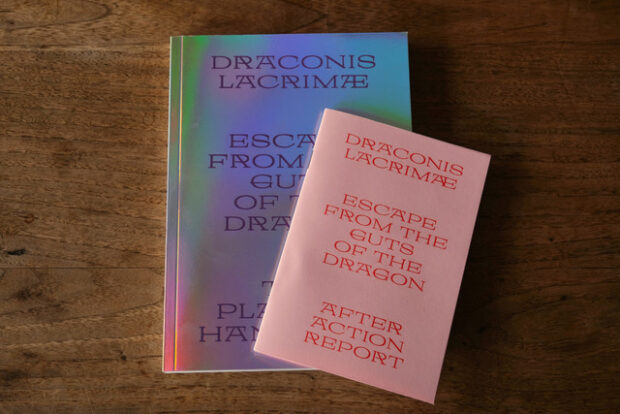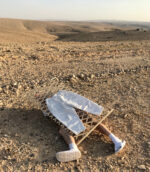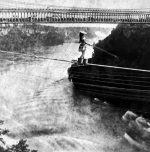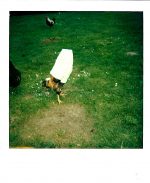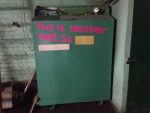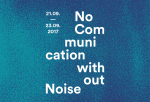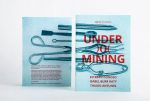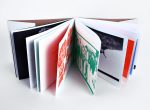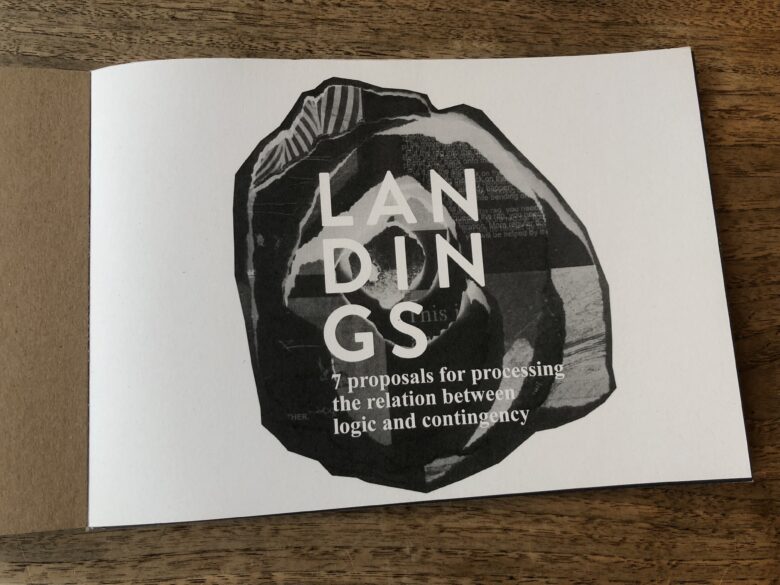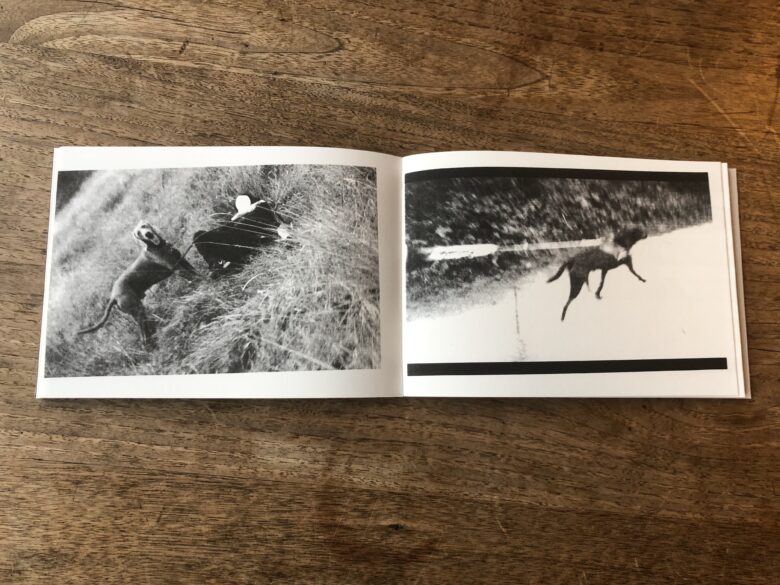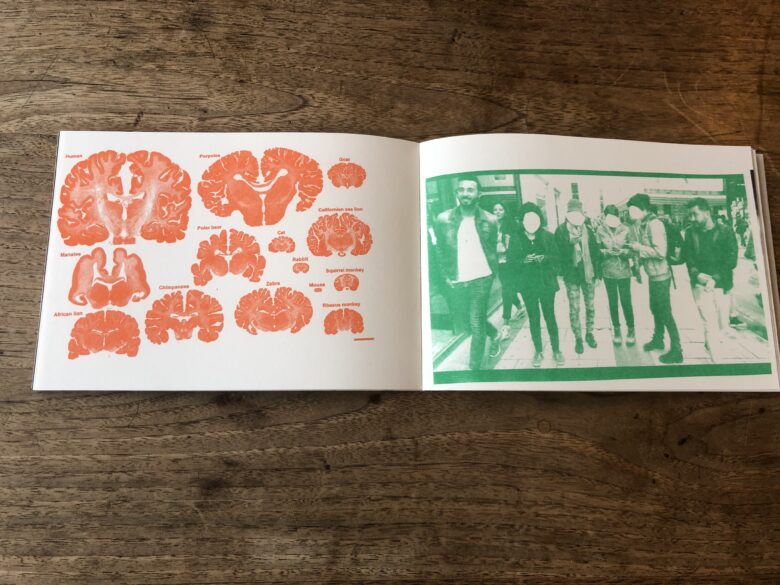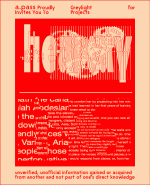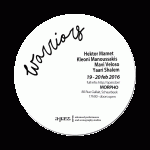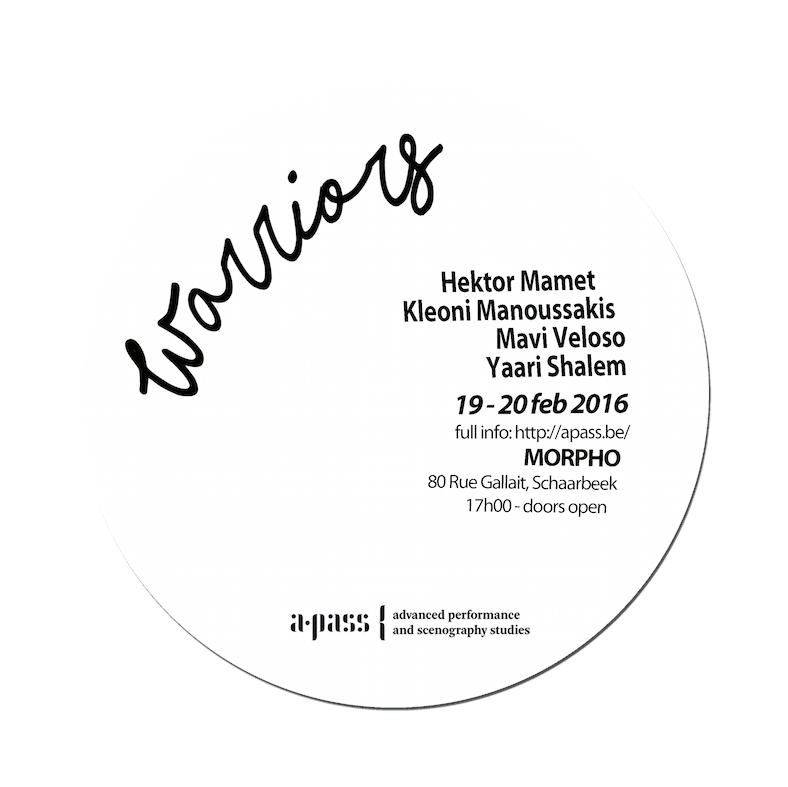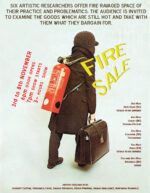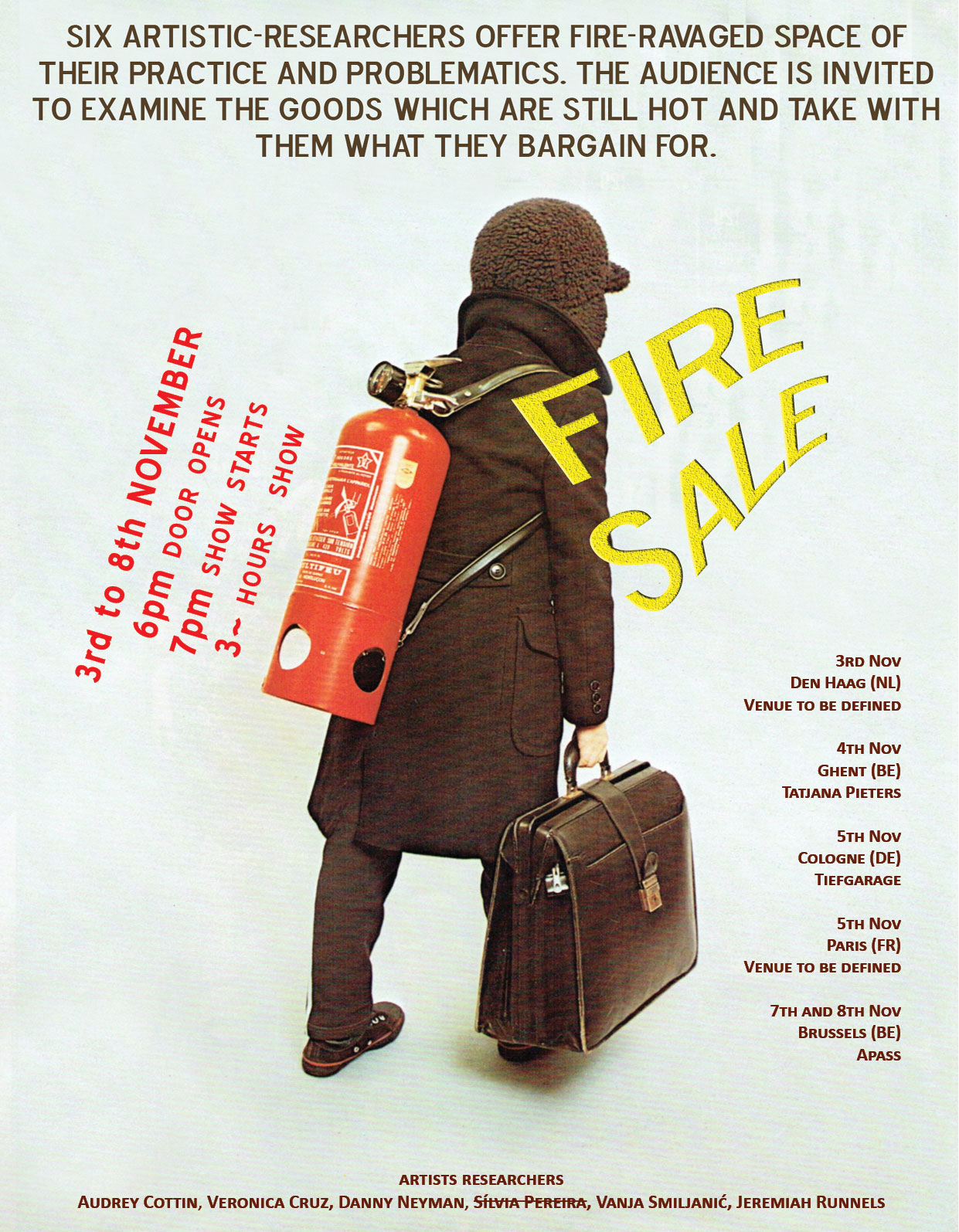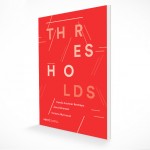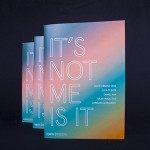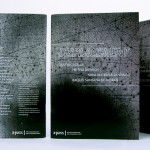In-between researcher and research, one finds:
overlap, interests, themes, fiction, text, reading, body, duet, partner, “doctoring”, object, performance, bodies, relationship, questions, researchers, looking, things, going, us, traces, deposits, authors, architectures, dealing, bed, laying, bleeding, seeping, noticing, noting, narrating, unveiling, something, happening, discovery, methodologies, conditions, agent, asking, producing, responses, lethargy, collapse, training, experience, moment, future, here, now, concept, life, rhythm, goals, worth, cheese, workshop, ancestry, trajectories, senses, intimacy, strength, power, assertion, insistence, compassion, idea, artistic practice, descaling, focus, layers, dislocating, destabilizing, conditions, conditioning, negotiating, ways, humanization, humans, violent category, systems, disability, concrete, reference, ableism, contemporary, dance, thinking, practices, phenomena, embodiment, dancer, vessel, object, bodies, Marley, memory, erasure, obliteration, intangible, incomprehensible, determined, social, aesthetic, queer, sexualized, opening, gendered, human body, crossing, cultures, genders, generations, narrative, storytelling, voice, transmission, conditions, vs, context, decontextualizing, evaluation, affects, pieces, autofiction, mundane, erotically, charged, space, trip, supermarket, cup, coffee, Monday, morning, laying, down, convergence, blind/low vision, rehabilitation, ‘co-habilitation’, patient-therapist, flooring, prosthetic, patient, therapist, audiences, invitations, systems, dance, disability, together, final, transmission, trespassing, somatic, work, curation, drifting, vicinity, quantum physics, OOO, socio-ecological, hopelessness, seemingly, desperate, galactic points, gayness, history, AIDS, transgenerational, speculative fiction, spoken word, theoretical, dramaturgical, methodological, suggestions, Black Holes, celestial, entities, writer, producer, sexuality, vehicle, political ideology, drafts, prosaic, nature, political, administration, structure, Brazil, urban planning, Netherlands, 2019, masters, Moving Images, Belgium, 2022, interdisciplinary, Brussels, Rīga, New York City, orientation, mobility specialist, ‘the clinic’, ‘the studio’, western, lineages, contact improvisation, medical, models, disability, therapeutics, interabled, collaborations, experimental prosthetics, development, form, theatrical performances, electronic, sound, composition, 1:1, instruction, multimedia, installation, MFA, choreography, intermedia, 2021, 2022, adjunct, faculty, department, blindness, visual impairment, living, working, Zagreb, shaping, sensory materials, intimate, social processes, digital, palpable objects, animated, choreographed, sung, non-orientable, forms, different media, processes, translation, queer science fiction, speculative technology, mutual transformation, MA, animated, film, new media, rest, caves, shape, language, performativity, self, scores, ...
If one makes a list of things, a list of all the things, if one were to try an embracive list of things that arise between being and doing, let’s say a dog and barking, and if one were to apply this question to artistic research, and aim at listing all the things that emerge between researcher and research, if one were to aim for the bottom of this list, what would emerge would be immeasurable distance, a very long line of things. At the end of the exercise, the question of what it intended, if not length, if not depth, if not stretch, perhaps could be: what is at stake between researcher and research?
For the four artist-researchers Marian Rosa van Bodegraven, Andrea Brandão, Alyssa Gersony, and Marko Gutić Mižimakov, it is the conflation of research and researcher via the subject. Letting go of notions of distance in relation to their research subject, they opt for a generative entanglement between the subject of research, researching and the researcher.
Understood as a sharing practice, artistic research involves attention, and awareness, and discipline, and effort, and being able to care about other people and to suspend oneself, over and over, every day, and at times in unflattering ways. For about a year this day-in-day-out practice positioned Marian, Andrea, Alyssa, Marko, as well as their other peers, towards each other as collaborators, witnesses, peers, co-conspirators, role-players, workshop facilitators and guinea pigs. Now, at the end of a joint trajectory, it involves making public, i.e. curating an event together, setting overlaps into printed matter, and extending their research intentions and questions to others.
End Communications, invites the audience to attune to the specific intensities produced by these research entanglements as they are shared and made public.
Marian Rosa van Bodegraven
The Final Exam: this research considers how an artistic practice affects and is affected by the body of the researcher through pieces of autofiction that contemplate the mundane as an erotically charged space: a trip to the supermarket, a cup of coffee, a Monday morning spent laying down. The research will be presented through a reading of three texts: Clementine, Monday Blues (written by H.de S. and researched in the context of the Am I Evil? Workshop, by Alice Ciresola and Simone Basani), and the eponymous The Final Exam.
Alyssa Gersony
co-habilitation: at the convergence of choreography and blind/low vision rehabilitation, this research proposes ‘co-habilitation’ as a way to reconfigure the patient-therapist relationship. Dance flooring (Marley) is taken as a duet partner, as a prosthetic, as a patient and a therapist, while audiences are invited into a deconstructed studio-clinic where bodies directly implicated in the systems of dance and disability perform together.
Marko Gutić Mižimakov
Less Than the Sum of Its Parts — Final Transmission is drifting in the vicinity of quantum physics, OOO, socio-ecological hopelessness and the seemingly desperate galactic points of gayness, the history of AIDS and its transgenerational affects. Trespassing performance, somatic work and curation, comes a spoken word duet speculating on the theoretical, dramaturgical, and methodological suggestions emerging from the idea of Black Holes as celestial bodies in proximity to touch and memory.
Andrea Brandão
first continue, then start (primeiro continuar, depois começar): Andrea’s research* lies within spaces of drifting, where rest, sleep, and the in-between start to carve out an embodied language that shapes the score of a performativity of the self. Through dislocating these transitory spaces into active, participatory experiences, Andrea aims to bring about the seemingly still nature of a state of consciousness that is informed by a rhythm that productively moves us through dark and liquid subterranean strata.
** At this moment, Andrea’s research will only be presented at a private scale, with a public moment at a later stage.
End Communications is co-curated by Marian Rosa van Bodegraven, Andrea Brandão, Alyssa Gersony, and Marko Gutić Mižimakov, together with artist-researcher Vijai Maia Patchineelam.
Programme
7pm, 3rd Floor The Final Exam, a reading by Marian Rosa van Bodegraven
-break- food & drinks available*, 4th Floor
8:15pm, 4th Floor co-habilitation, a performance by Alyssa Gersony
-break- drinks available, 4th Floor
9:15pm, 4th Floor Less Than the Sum Of Its Parts — Final Transmission
a performance by Marko Gutić Mižimakov in collaboration with Petar Sarjanović
Friday till 11:00 pm post-performance mingle, food & drinks available*
Saturday till 1:00 am post-performance party, drinks available
*On both days, a.pass alumni and culinary artist Aslı Hatipoğlu will prepare vegetarian bibimbap and sweet bites for sale over the course of the evening (gluten free, vegan option available).
Marian Rosa van Bodegraven is a Brazilian-Dutch researcher, writer and producer. Marian’s body of research moves around sexuality as a vehicle for political ideology. Through writing and readings, she drafts on the prosaic nature of sexuality, and the seemingly en passant layers of a political administration of desire that structure it. Born and raised in Brazil, where she studied Architecture and Urban Planning at Escola da Cidade, she moved to the Netherlands in 2019, where she did her MA in Moving Images at the Sandberg Institute.
Alyssa Gersony is a Jewish-American interdisciplinary artist currently working in Brussels, Rīga and New York City. Trained as a contemporary dancer and orientation and mobility specialist, Alyssa regularly traverses ‘the clinic’ and ‘the studio.’ Across these spaces, Alyssa practices within western lineages of contact improvisation, medical models of disability therapeutics, interabled performance collaborations, and experimental prosthetics development. Her work takes the form of theatrical performances, electronic sound composition, artistic development workshops, 1:1 individual instruction, and multimedia installation. Alyssa holds an MFA in choreography and intermedia performance, is a 2021-2022 Fulbright awardee in dance research, and is currently an adjunct faculty in the City University of New York, Hunter College department of blindness and visual impairment.
Marko Gutić Mižimakov is a visual, performance and text based artist and researcher living/working between Brussels and Zagreb. He is interested in shaping sensory materials through intimate, collaborative and social processes. In his work bodies as well as digital and palpable objects, are animated, choreographed and sung into non-orientable forms via different media and processes of translation. Often borrowing from queer science fiction he sees his work as a speculative technology of mutual transformation. He has an MA in Animated Film and New Media from the Academy of Fine Arts in Zagreb and is currently an adjunct faculty member at Paris College of Art in the department of Transdisciplinary New Media.
Andrea Brandão is a visual and undisciplinary artist living and working between Brussels and Lisbon. Working in the expanded fields of visual arts, performance, cinema, and more, Andrea’s research explores notions of sleep, rest, and drifting in relation to participatory experiences facilitated by scores and assisted at times by audio-visual elements. She is interested in interweaving writing, camera-ing, meditating, and dreaming. She was born in Portugal and started traveling at a very young age. She holds a B.A. in Industrial Design from University of Lisbon’s Faculty of Architecture (2000) and has completed the Advanced Course in Visual Arts of Ar.Co - Centro de Arte e Comunicaçāo Visual and attended Studies of body and movement at c.e.m. - Centro em movimento, in Lisbon.
Collaborators:
Gabi Vanek (co-habilitation, lighting design and audio engineer) is a musician and lighting technician based in Iowa City, USA. As a technician she has worked on projects ranging from HBO to Alvin Ailey American Dance Theater, to touring artists including Arooj Aftab, Son Lux, and Jenny Lewis.
Petar Sarjanović (Final Transmission, performer collaborator) is a dramaturg from Zagreb, now living in Brussels, also active as writer, performer and theater maker. In 2020 Petar premiered ‘Everything I don’t know, I’ve stolen’, a solo work that deals with the processes of mis- and dis-identification and the folklorization of western canon.
Co-curator:
Vijai Maia Patchineelam’s artistic practice focuses on the dialogue between the artist and the art institution. Placing the role of the artist as a worker in the foreground, Vijai’s research-driven artistic practice experiments with and argues for a more permanent role for artists — one in which artists become a constitutive part of the inner workings of art institutions. Vijai is a former associate researcher at the Research Center, and has since come back on different occasions as a mentor for the Post-Graduate Program at a.pass.
